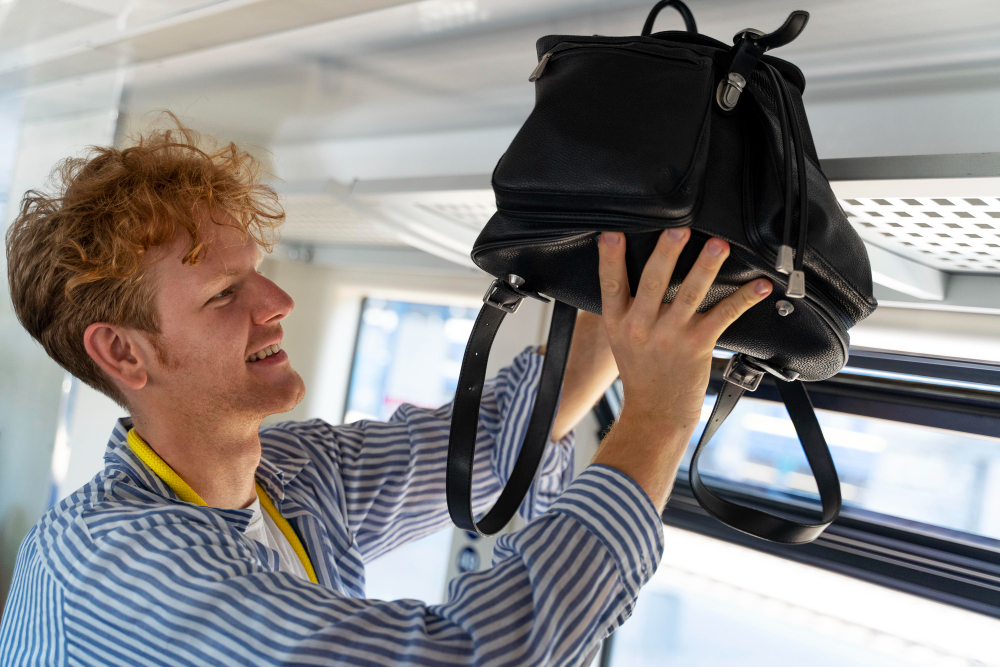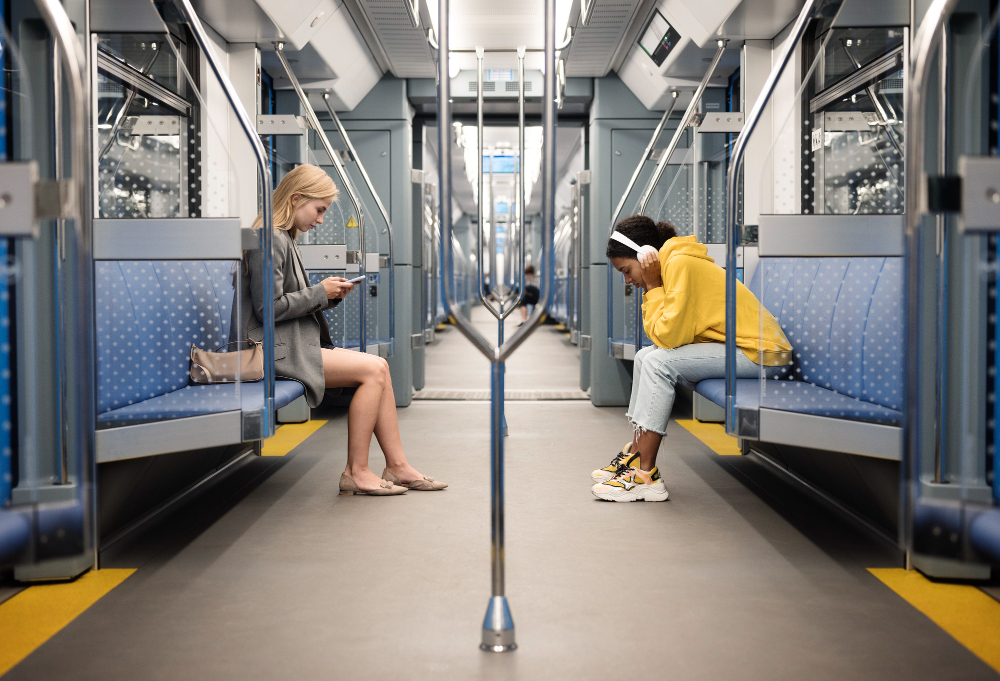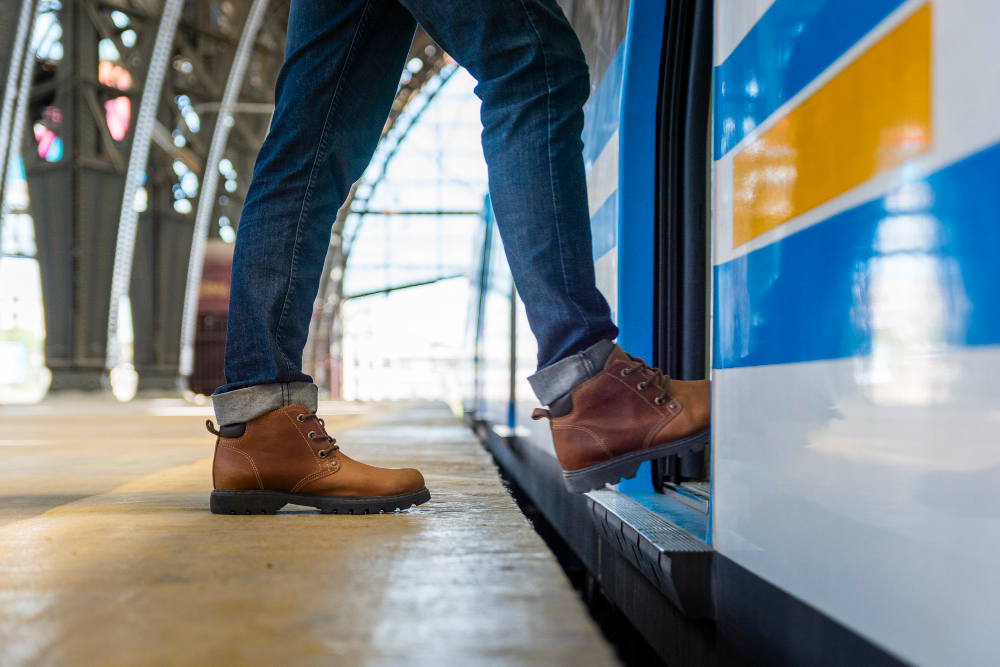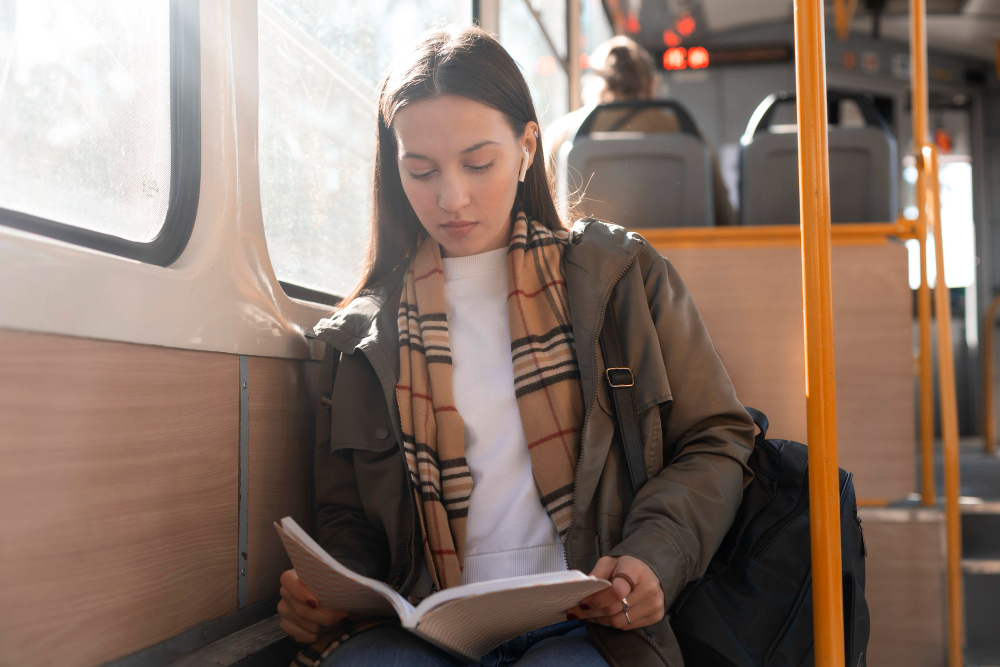Master the unwritten rules to travel smoothly and respectfully on European trains.

Riding trains through Europe is a delightful way to explore the continent, but it comes with its own set of etiquette rules. Respecting these unwritten guidelines ensures a pleasant journey for you and your fellow passengers. From managing luggage to keeping noise levels down, being considerate can make your trip more enjoyable.
These nine essential rules of etiquette will help you navigate European trains with confidence, courtesy, and a touch of local charm.
1. Keeping your luggage organized avoids crowding shared spaces.

When boarding a European train, storing your luggage correctly is essential to ensure a comfortable ride for all. Use designated luggage racks or overhead compartments to keep aisles clear and avoid placing large bags on seats. Compact items like backpacks should be kept close to you or under your seat. If the train is crowded, stack luggage neatly in shared areas. By managing your belongings responsibly, you contribute to a smooth boarding process and a more enjoyable journey for everyone.
2. Respecting quiet zones maintains a peaceful environment.

Many European trains feature quiet zones, specifically designated for passengers seeking a calm atmosphere. If you find yourself in one, refrain from making phone calls, talking loudly, or playing music without headphones. Even outside these areas, keeping your voice low and avoiding disruptive behavior demonstrates courtesy. Quiet zones are particularly valued by travelers who want to work, read, or rest. Respecting these spaces ensures a serene experience and reflects your understanding of cultural expectations.
3. Allowing passengers to disembark first ensures smoother boarding.

One of the most basic rules of train etiquette is letting passengers exit before boarding. Standing back and waiting for disembarking passengers to clear the doorway prevents congestion and confusion. Crowding the entrance can delay everyone and create unnecessary stress. Once the door area is clear, board swiftly and find your seat without blocking pathways. Following this simple practice helps maintain order, keeps the schedule on track, and ensures a smoother transition for all passengers.
4. Keeping your ticket ready for inspection avoids delays.

Train conductors regularly inspect tickets during European rail journeys, so it’s essential to have yours ready at all times. Whether using a paper ticket, mobile QR code, or a rail pass, keep it easily accessible to avoid fumbling when the inspector arrives. If your ticket requires validation before boarding, take care of this at the station. Having your ticket prepared shows respect for the conductor’s time and ensures a seamless experience for both you and your fellow travelers.
5. Sharing tables and armrests promotes fairness and comfort.

Shared seating areas, like tables or limited armrest spaces, require consideration for others. Place your belongings in your own space and avoid spreading items across shared surfaces. When sitting at a table, keep it tidy and free for everyone to use comfortably. Sharing armrests fairly is also key to maintaining harmony in crowded train cars. By being mindful of shared spaces, you foster a positive environment where all passengers can relax and enjoy their journey.
6. Avoiding strong-smelling foods shows consideration for others.

Eating on trains is common, but it’s important to choose foods that won’t offend others with strong odors. Avoid meals with garlic, onions, or other pungent ingredients, as the confined space amplifies smells. Instead, opt for discreet snacks like sandwiches, fruit, or crackers. Dispose of wrappers and leftovers properly to keep the train clean. Being mindful of your food choices ensures a more pleasant experience for those around you, creating a respectful and comfortable environment.
7. Being punctual ensures a smooth boarding experience.

European trains are famously punctual, so arriving at the station early is essential to avoid last-minute stress. Check departure times and platform details in advance, and give yourself time to navigate busy stations. Boarding promptly helps trains stay on schedule and keeps other passengers from being delayed. If you’re traveling with luggage, allow even more time to get settled. Punctuality not only reduces personal anxiety but also demonstrates respect for the efficiency of European rail systems.
8. Offering your seat to those in need demonstrates kindness.

If you’re seated in a crowded train, offering your spot to elderly passengers, pregnant individuals, or those with disabilities is a kind and thoughtful gesture. This is particularly important in general seating areas or commuter trains where reserved seats may be unavailable. In many European countries, offering your seat is seen as a cultural norm and an expression of respect. Small acts of courtesy, like giving up your seat, create a more pleasant experience for everyone onboard.
9. Cleaning up after yourself leaves the train pleasant for others.

Leaving your seat clean and tidy is an essential part of train etiquette. Collect all your belongings and dispose of trash in the bins provided before disembarking. If you’ve spilled something, clean it up or notify the staff. A neat and clean environment benefits the next passengers and helps the train staff maintain high standards. By cleaning up after yourself, you show consideration for others and contribute to a positive travel experience for everyone.
